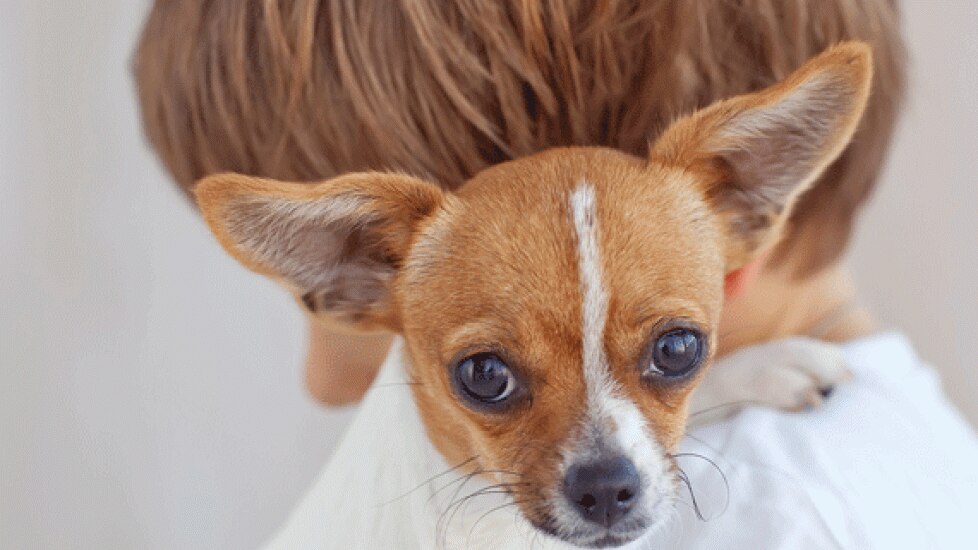Science Says: Animals Make People Happier
Anyone who has met my Golden, Brody, immediately notices one thing: he is a real people pleaser. I mean, even among Goldens, who are known to be friendly and affable, he stands out as a seriously people-loving kind of guy. When we go to the dog park, he does one lap around the place to see who is there and then spends the rest of his time hanging out with the dog owners.
When my husband met with the breeder, they explained that this particular line had been selected as much for their temperament as for their looks, and as their way of giving back to the community, one dog from each litter is donated to an organization to be trained as an autism therapy dog.
While service dogs for children with autism are now fairly common, at the time it was something I hadn’t heard of before. They explained how the dogs are not only helpful in reducing disruptive behaviors and stress, they often help keep children from wandering away, help them develop emotional skills, and function as a bridge between their person and the often bewildering society surrounding them.
Recommended Pet Products
- Nutramax Proviable Probiotics & Prebiotics Digestive Health Supplement for Dogs & Cats, 160 count$89.98Chewy Price
- Fera Pets USDA Organic Pumpkin Plus Fiber Support for Dogs & Cats, 90 servings$34.95Chewy Price
- All Four Paws Comfy Cone E-Collar for Dogs & Cats, Black, Small$20.24Chewy Price
- Virbac Epi-Otic Advanced Ear Cleaner for Dogs & Cats, 4-fl oz bottle$12.34Chewy Price
People who have service dogs for various purposes — from epilepsy warnings to seeing-eye guides — often report that one of the greatest unintended side effects of a service animal is the fact that they are also a great conversation starter, helping people overcome their hesitation at approaching someone different than they are. Social anxiety, which affects all sorts of people, is a burden keenly experienced by people in the autism community, and an animal often helps reduce those effects in more ways than one.
A recent study in the journal Developmental Psychobiology confirmed this additional benefit. While wearing a device to measure anxiety, 38 children with autism and 76 without were given several tasks, such as reading aloud and playing with other children. Then they were given a supervised play session with a guinea pig.
Compared to the control group, the children with autism experienced higher levels of anxiety during their tasks, but also experienced significant drops in anxiety during their play session. While studies done in the past have suggested this, as far as I know this is one of the first ones to actually quantify the benefit with physiologic data.
I was surprised that even a relatively low-key animal like a guinea pig could produce such significant results. How much more profound is this anxiety-reducing effect when you have a demonstrative pet and a longstanding family relationship? It must be huge.
Few moments make me happier in life than seeing a pet and his or her owner light up in each others’ presence. It might be the first time a study has put a number to how much animals can help people feel happier, but it’s certainly nothing we didn’t already suspect, right?

Dr. Jessica Vogelsang
Image: Nina Buday / Shutterstock




